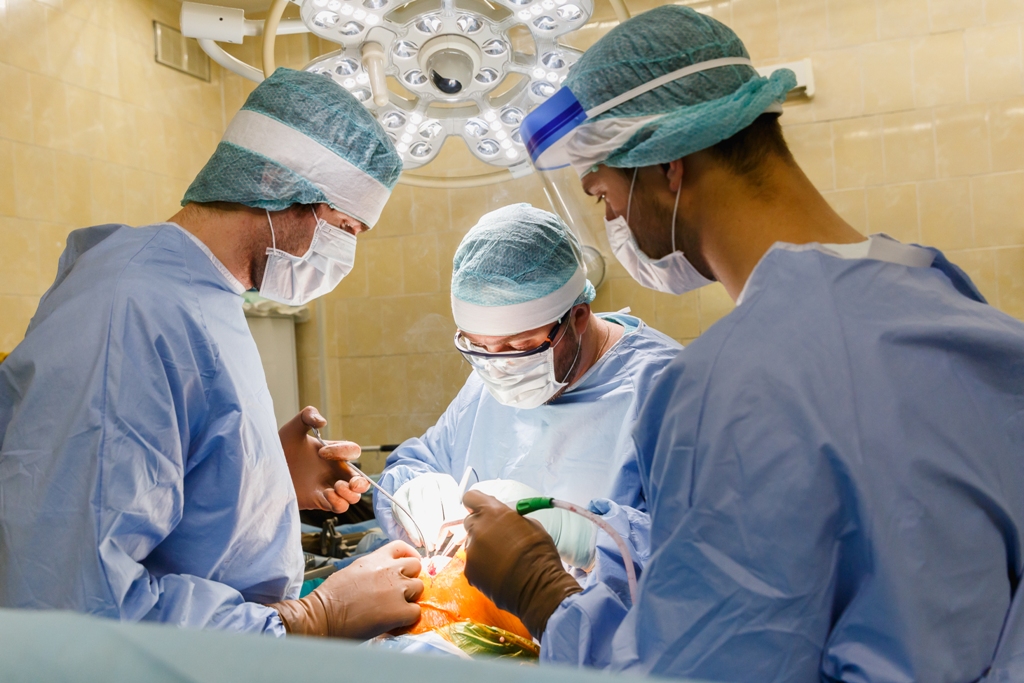Total knee arthroplasty (TKA) 
Total knee arthroplasty (TKA) is a complex surgical procedure involving resection of knee articular surfaces and replacing them with corresponding implant.
TKA is done in case of:
- severe knee pain;
- moderate to severe knee arthritis;
- moderate to severe range of motion (ROM) restrictions.
Contraindications
- general health related contraindications (consult you therapist);
- septic arthritis;
- deep vein thrombosis.
Things to do at home before the operation
- obtain crutches;
- install handrails in your bathroom;
- get elevated lavatory seat;
Things to take to the hospital
- toiletries;
- loose and comfortable clothing.
Types of implants
- total (posterior stabilized / with retention of cruciate ligament);
- unicompartmental.
Unicompartmental knee is implanted when only medial compartment of knee is affected by arthrosis, both cruciate and collateral ligaments are intact.
The process of TKA
TKA is done with a patient in supine position under spinal or combined anesthesia. A skin incision (up to 15 cm) is done above patella then continued to medial parapatellar arthrotomy. After resection of articular surfaces implant of choice is cemented in and appropriate liner is installed.
Complications
- residual pain (common);
- residual ROM restrictions (moderate);
- periprosthetic infection (moderate);
- patellar or liner dislocations (rare);
- deep vein thrombosis (rare);
- aseptic loosening of implants (rare).
Even though contemporary implants are considered to be generally reliable complications sometimes arise. All complications are either related to implant malposition, poor surgical technique or failure to comply with surgeons prescriptions.
Residual pain and ROM restrictions are commonly related to implant malposition, which after further investigation may reoperation.
Periprosthetic infection can manifest either early or sometime (even years) after the operation and is commonly related to previously unidentified source of chronic infection, which after further investigation requires revision total knee arthroplasty.
Patellar and liner dislocations are quite rare and are commonly related to severe implant malposition or damage to patellofemoral ligaments and require reoperation.
Deep vein thrombosis may lead to pulmonary embolism and is often related to failure of taking prescribed anticoagulants or refusal to wear compression stockings after operation.
Aseptic loosening of implants is commonly related to cyclic overloading of the knee, poor surgical technique and implant malposition which after further investigation may require reoperation.
MRI related question
Contemporary knee implants are made of different metal alloys which do not or minimally react to magnetic field. However it is recommended to consult your surgeon for further instructions.
Before undergoing MRI find out if there is an option of ‘metal suppression’ to increase the quality of diagnostic procedure.



